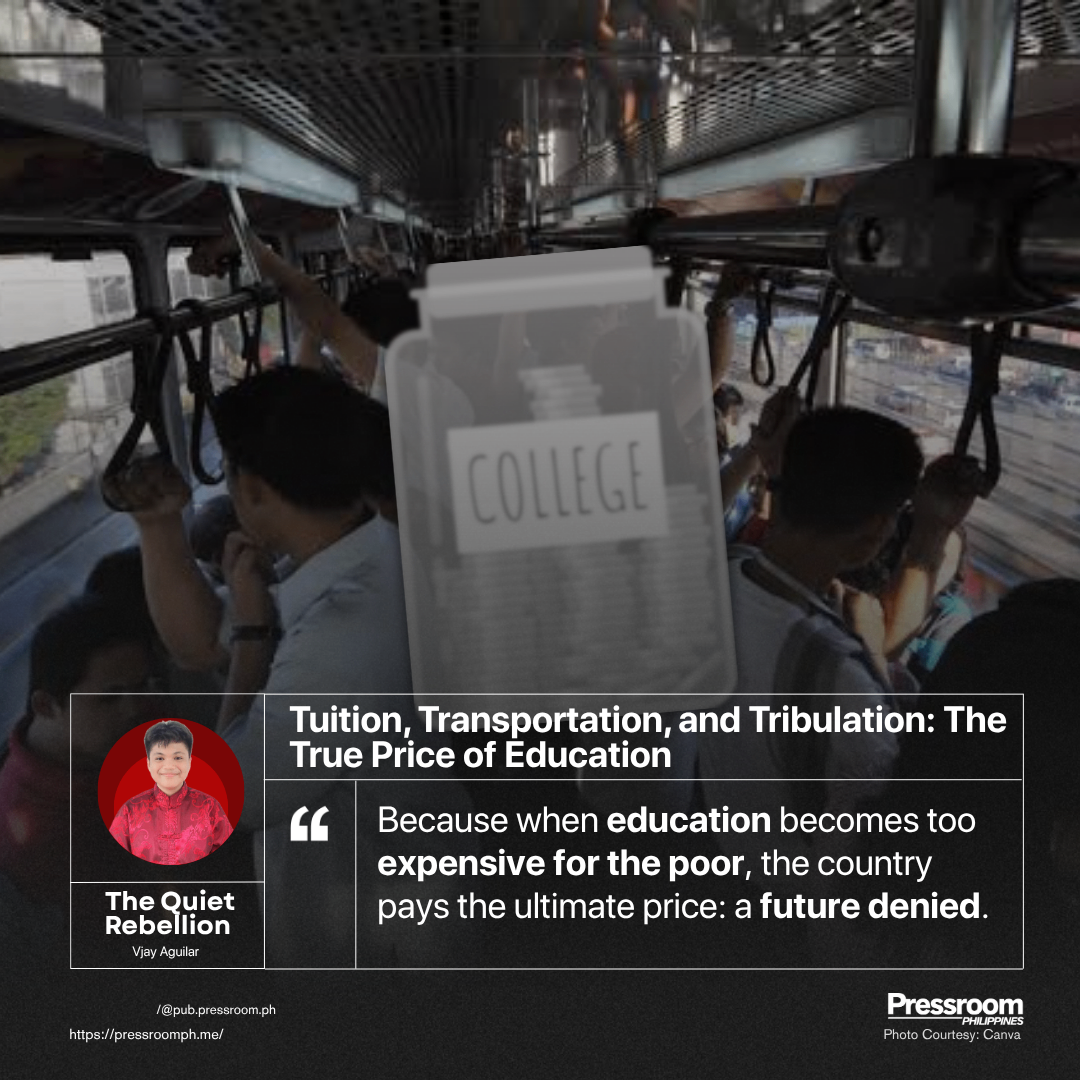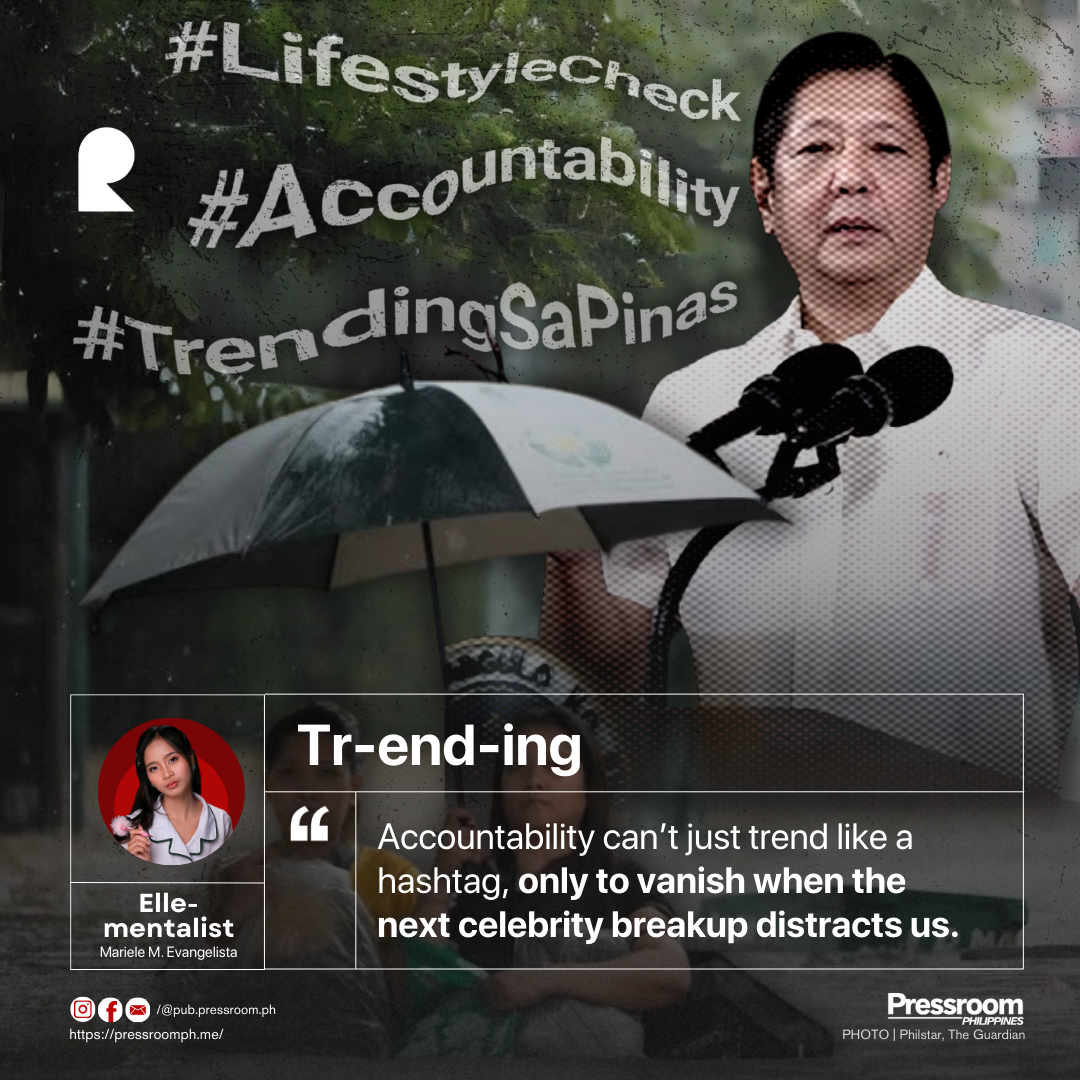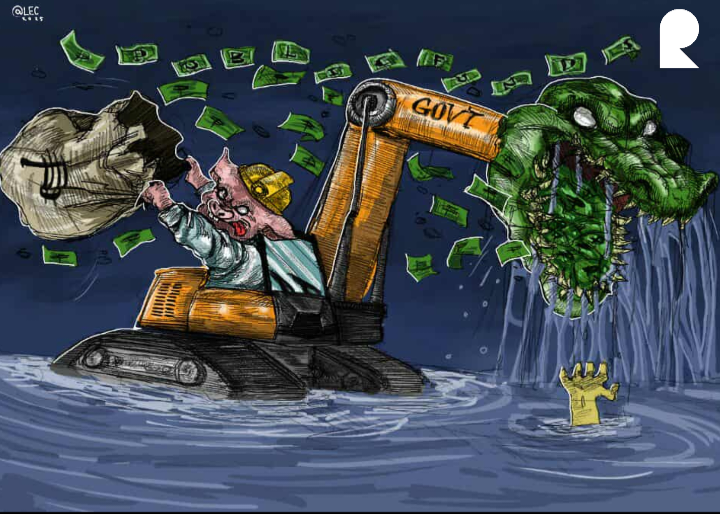𝘃𝗶𝗮 𝗩𝗷𝗮𝘆 𝗔𝗴𝘂𝗶𝗹𝗮𝗿, 𝗣𝗿𝗲𝘀𝘀𝗿𝗼𝗼𝗺 𝗣𝗛
In the Philippines, the dream of earning a diploma has always been seen as the key to a better future. For many Filipino families, education is not just a right but a prized investment, often pursued at any cost. Yet, behind every graduation photo and medal ceremony lies a harsh reality — that being a student in this country comes with a heavy, often unbearable, price tag.
I firmly believe that while education remains a vital tool for progress, the rising financial burden it places on students, especially those from working-class families, is both unjust and unsustainable.
Today, the financial demands on students stretch far beyond tuition fees. Daily expenses such as transportation, school projects, internet connectivity, and even mandatory gadget purchases have become non-negotiable parts of student life. For many, these added costs mean sacrificing meals, skipping classes, or working side jobs just to stay in school. What was once a noble pursuit of knowledge has quietly turned into a daily financial battle, one that most students fight silently.
Consider this: In Metro Manila, daily transportation costs alone can eat up ₱100–₱200 of a student’s limited allowance, especially with recent fare hikes. School projects — often requiring printed materials, specialized costumes, or digital submissions — easily cost hundreds more. During the pandemic’s shift to online learning, families were pressured to buy smartphones, tablets, or laptops, with some students having to attend classes in internet cafés or borrow gadgets from neighbors. A 2024 survey by a local youth advocacy group revealed that 7 out of 10 public high school students had missed school days due to financial struggles. This statistic reflects a sobering truth: education is increasingly becoming a privilege, not a right.
It’s high time we recognize that resilience and resourcefulness, though admirable, should not be prerequisites for a student’s success. Government institutions, school administrators, and private stakeholders must work together to lighten this load — through fare discounts, educational subsidies, digital equipment loans, and the abolition of unnecessary school expenses. The nation loves to applaud its graduates, but it must also be willing to support its struggling students. Because when education becomes too expensive for the poor, the country pays the ultimate price: a future denied.






